Duke Today

Spring’s crop of books from Duke authors includes a history of grievance in the United States, an up-close look at the camaraderie at Durham Bulls games, and a guide on understanding sex and gender.
Below is a roundup of some of the most recent and upcoming published titles.
Many of the books, including new editions of previous titles, can be found on the “Duke Authors” display shelves near the circulation desk in Perkins Library. Some are available as e-books for quick download. Most can also be purchased through the Gothic Bookshop.
[If you are a member of the Duke faculty or staff who will be publishing a book of interest to a general audience, send us a message at duketodayeditors@duke.edu along with your publisher’s brief description.]
Nima Bassiri: Madness and Enterprise: Psychiatry, Economic Reason, and the Emergence of Pathological Value (The University of Chicago Press)
Bassiri, assistant professor of literature, explores how psychiatrists in the 19th century associated money with mental illness. Bassiri shows how this association changed the idea of value: moral value, medical value and economic value were considered interchangeable.
Kate Bowler: Have a Beautiful, Terrible Day!: Daily Meditations for the Ups, Downs & In-Betweens (Cokesbury)
Divinity professor Bowler’s latest bookoffers reflections and action-oriented steps to help us get through the day. She encourages us to develop our capacity to feel the breadth of our experiences to become more resilient.
Frank Bruni: The Age of Grievance (Simon & Schuster)
The latest book from Bruni, a bestselling author and Eugene C. Patterson Professor of the Practice of Journalism and Public Policy, explores resentment in this country, from small ones to the larger ones that define our current political culture. He examines how we got here and charts a path forward.
Douglas Campbell with Jon DePue: Beyond Justification: Liberating Paul’s Gospel (WIPF and Stock Publishers)
Divinity professors Campbell and DePue reexamine Paul’s justification texts, paying attention to their original historical circumstances in which they were composed, to uncover new meaning.
Tony Cheng: The Policing Machine: Enforcement, Endorsements, and the Illusion of Public Input (University of Chicago Press)
Assistant professor of sociology Cheng spent nearly two years with the NYPD to explore how police departments have resisted meaningful change, despite public calls for transformation.
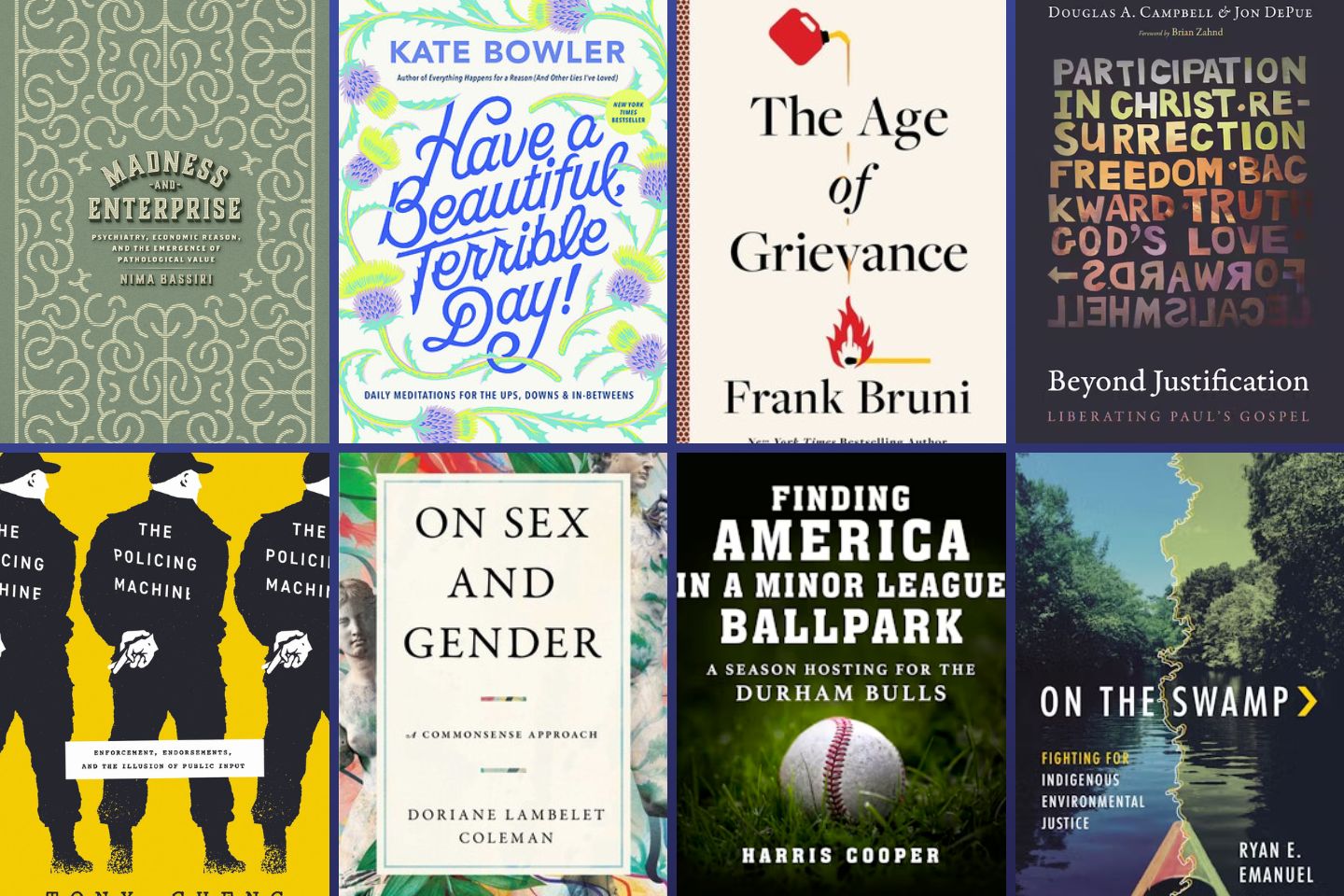
Doriane Lambelet Coleman: On Sex and Gender (Simon & Schuster)
This book by Coleman, Thomas L. Perkins Distinguished Professor of Law, is a guide on sex and gender—something everyone wants to understand but is terrified to discuss. Coleman focuses on three questions: What is sex as opposed to gender? How does sex matter in our everyday lives? And how should it be reflected in law and policy?
Harris Cooper: Finding America in a Minor League Ballpark (Skyhorse Publishing)
Emeritus social science professor Cooper took a job as a host for the Durham Bulls, one of the most famous minor league baseball teams, helping people find their seats and talking to employees and fans. In this book he presents a both history of the team and of minor league baseball. See story in Duke Today.
Ryan Emanuel: On the Swamp: Fighting for Indigenous Environmental Justice (University of North Carolina Press)
Despite centuries of colonialism, Indigenous peoples still occupy parts of their ancestral homelands in what is now Eastern North Carolina. Duke environmental scientist Emanuel, a member of the Lumbee tribe, shares stories about Indigenous survival and resilience in the face of radical environmental changes.
Kieran Healy: The Ordinal Society (Harvard University Press)
Duke sociologist Healy, with co-author Marion Fourcade, argue that technologies of information management, along with the abundance of personal data and the infrastructure of the internet, transform how we relate to ourselves and to each other through the market, the public sphere and the state.
Mbaye Lo: Sheikh Moussa Kamara’s Islamic Critique of Jihadists (Lexington Books)
Sheikh Moussa Kamara was one of the most prolific writers of the 20th century. His objection to jihad is one of his most pertinent works. From associate professor Lo, a specialist in Middle East studies, this book is the first English translation and commentary of that work.
Andrew Griebeler: Botanical Icons (University of Chicago Press)
Griebeler, professor of art, art history & visual studies, draws on centuries of botanical illustrations from across Europe and the Mediterranean to show how diverse and sophisticated modes of plant depiction emerged and gave rise to practices now recognized as central to modern documentation of plants.
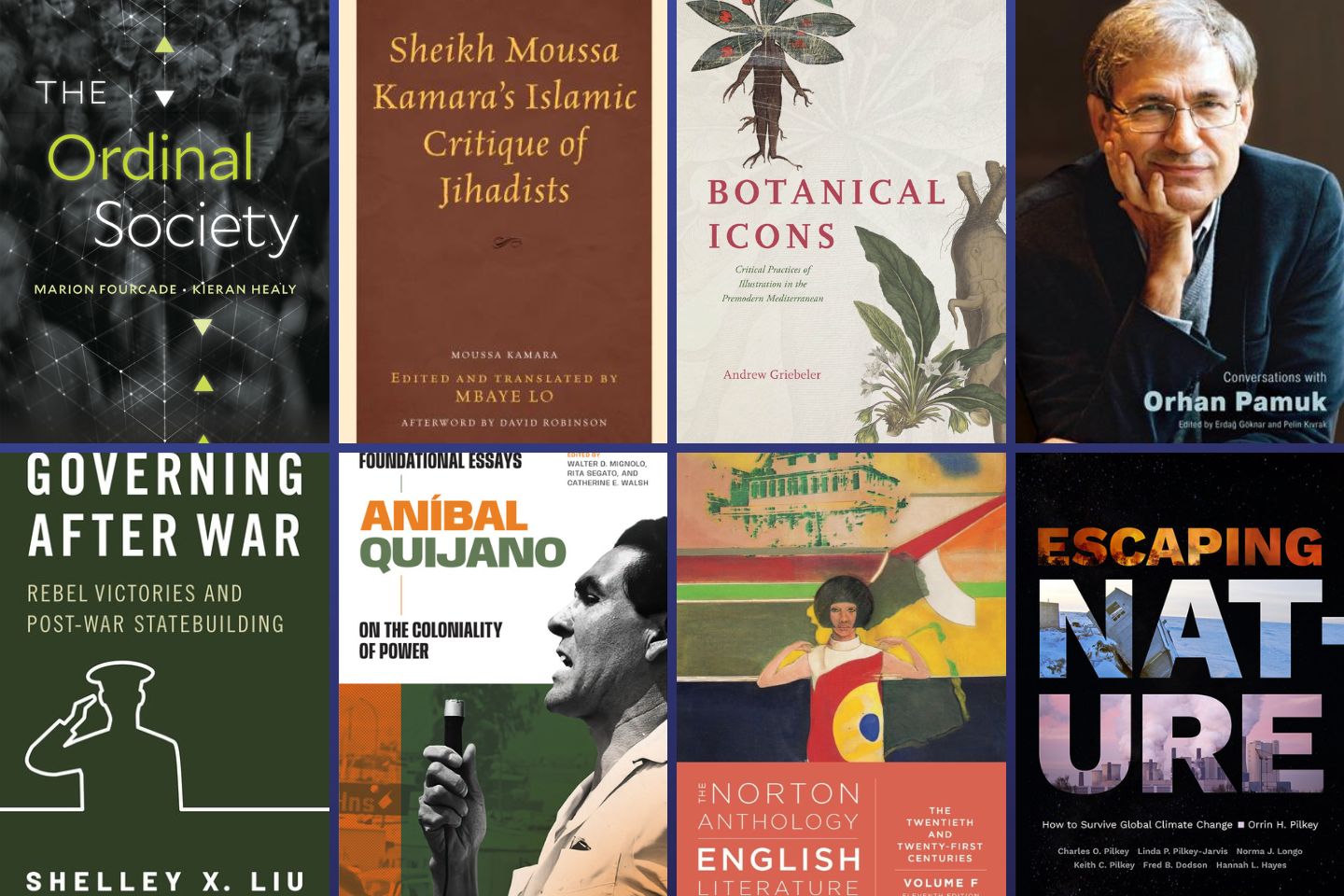
Erdağ Göknar: Conversations with Orhan Pamuk (University Press of Mississippi)
Duke professor Göknar has been one of the leaders in bringing the writing ofTurkish author Orhan Pamuk, a Nobel laureate, to wider audiences. For this book, Göknar draws on decades of media interviews with Pamuk to highlight how his innovations and distinctive retelling of Turkish life have captured the imagination of readers everywhere. Read story on the Trinity College website.
Shelley Liu: Governing After War: Rebel Victories and Post-war Statebuilding (Oxford University Press)
Liu, an assistant professor at Sanford, explores how wartime processes affects post-war state-building efforts when rebels win a civil war and come into power. Liu’s research offers implications for rebel victories and, more broadly, for understanding the legacies of such conflicts around the world.
Walter Mignolo: Aníbal Quijano: Foundational Essays on the Coloniality of Power (Duke University Press)
Mignolo, William Hane Wannamaker Distinguished Professor of Romance Studies, is co-editor of this collection of writings from Quijano, the Peruvian sociologist. This volume contains Quijano’s main hypotheses, concepts and arguments.
Simon Partner: Koume’s World: The Life and Work of a Samurai Woman Before and After the Meiji Restoration (Columbia University Press)
Koume was poet and painter and a wife, mother and grandmother in a lower-ranking samurai family in a provincial town in Japan during the 1800s. Drawing on a diary she kept of daily life, Partner, a history professor, highlights some of the most dramatic periods of Japan’s transformative nineteenth century.
Orrin Pilkey: Escaping Nature: How to Survive Climate Change (Duke University Press)
Pilkey, professor emeritus from the Nicholas School of the Environment, is co-author of this book offering concrete suggestions for how to respond to the threats posed by global climate change. The book explores effective technological changes, nature-based solutions, political action and changes in human behavior.
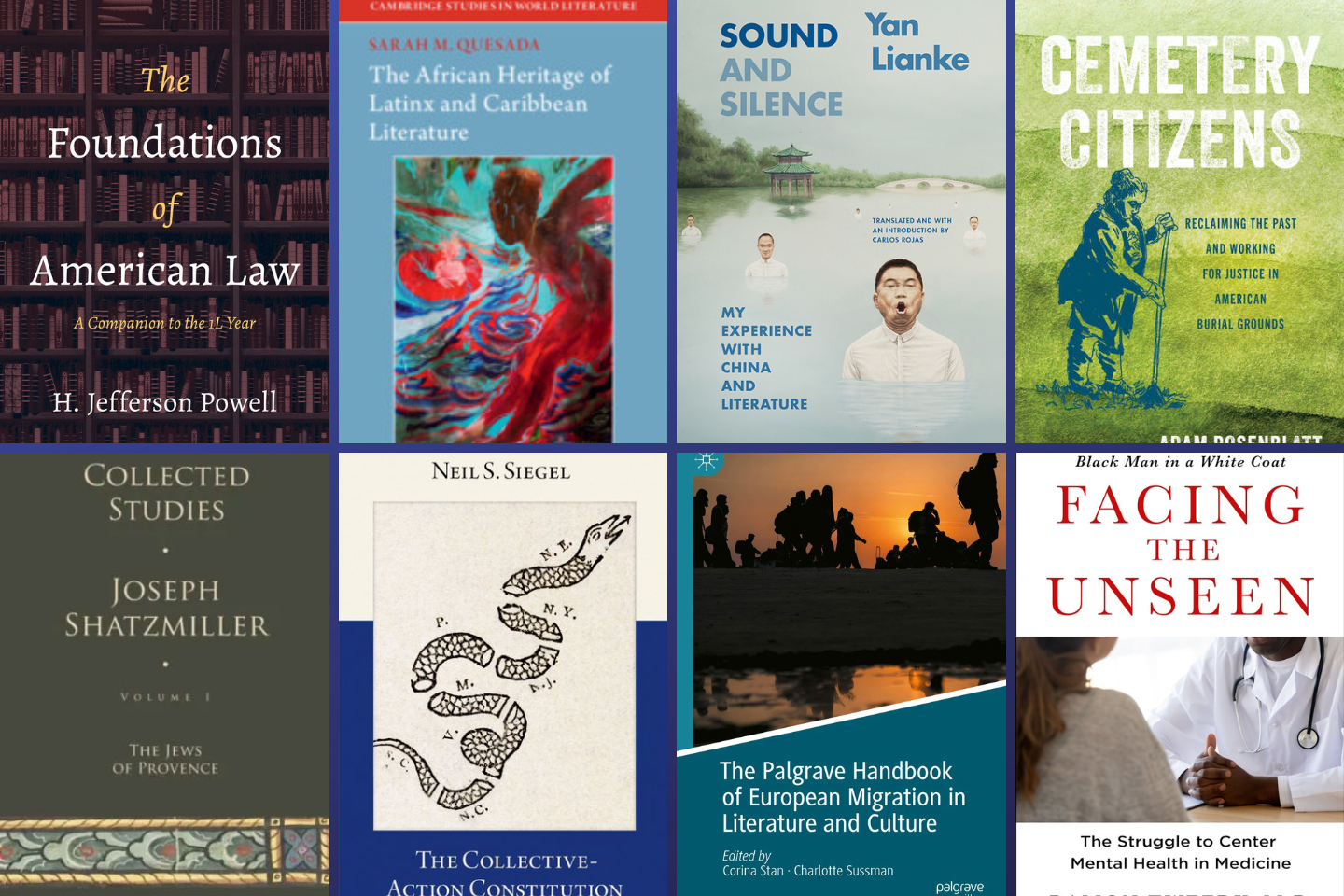
H. Jefferson Powell: The Foundations of American Law: A Companion to the 1L Year (Carolina Academic Press)
Law professor Powell introduces readers to the background assumptions about the American law and legal arguments that inform how lawyers and judges read decisions and other legal documents, and how they think about legal problems.
Sarah Quesada: The African Heritage of Latinx and Caribbean Literature (Cambridge University Press)
This is the first book-length project to address the African colonial and imperial inheritance of Latinx literature. Quesada, Andrew W. Mellon Assistant Professor of Romance Studies, unearths a buried African archive within Latinx writers of the last 50 years.
Carlos Rojas: Sound and Silence (Duke University Press)
A professor of Chinese cultural studies, Rojas is the editor and translator of the latest book from the Chinese novelist Yan Lianke, a world-renowned author of novels, short stories, and essays that explore the reality of everyday life in contemporary China.
Adam Rosenblatt: Cemetery Citizens: Reclaiming the Past and Working for Justice in American Burial Grounds (Stanford University Press)
Groups of grassroots volunteers across the country gather in overgrown, systemically neglected cemeteries. They rake, clean headstones and research silenced histories. This book by Rosenblatt, associate professor of the practice, is a study of this emerging form of social justice work. Read story in Duke Today.
Joseph Shatzmiller: Collected Studies: The Jews of Provence (Academic Studies Press)
Shatzmiller, Smart Family Distinguished Professor Emeritus in Judaic Studies, offers a comprehensive overview of the medieval history of the Jews in Provence, France, through an analysis of community regulations, tax distribution, rabbinic leadership, and everyday life.
Neil Siegel: The Collective-Action Constitution (Oxford University Press)
The U.S. Constitution was established primarily because of failures of its predecessor, the Articles of Confederation, to adequately address “collective-action problems” facing the country. This book by Siegel, David W. Ichel Distinguished Professor of Law, examines the collective-action principles in the structure of the Constitution and how they should be applied to meet the daunting challenges facing America today.
Corina Stan and Charlotte Sussman: The Palgrave Handbook of European Migration in Literature and Culture (Springer)
The two English professors are co-editors of a collection of essays on literature, film, drama, graphic novels and more to discuss migration beyond figure of the refugee. They address migration and media, hostile environments, migration and language, migration and literary experiment, and figurations of the migrant.
Damon Tweedy: Facing the Unseen: The Struggle to Center Mental Health in Medicine (MacMillan)
Tweedy, professor of psychiatry and behavioral sciences, shares his experiences from medical school to show how medical culture has historically separated physical and mental health and how that dichotomy harms both patients and doctors. He argues we can better integrate these two perspectives for a more holistic and effective approach to health and well-being.
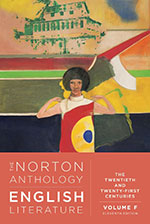
Aarthi Vadde: The Norton Anthology of English Literature: The Twentieth and Twenty-First Centuries (W.W. Norton)
Vadde, associate professor of English is a co-editor on the 11th edition of this volume, which showcases new authors, works and textual clusters that demonstrate the relevance of literature to students today. The edition provides historical context, cultural notes and annotations where appropriate.
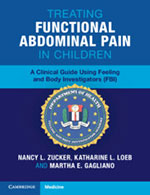
Nancy Zucker: Treating Abdominal Pain in Children (Cambridge University Press)
In this guide, Zucker, professor of psychiatry and behavioral sciences, introduces children with functional abdominal pain to a cast of characters including Georgia the Gut Growler and Harold the Hunger Pain. Through these characters, kids are trained to listen to their bodies to learn why their belly might be hurting and how to manage their symptoms. Read story in the Duke Psychiatry website.